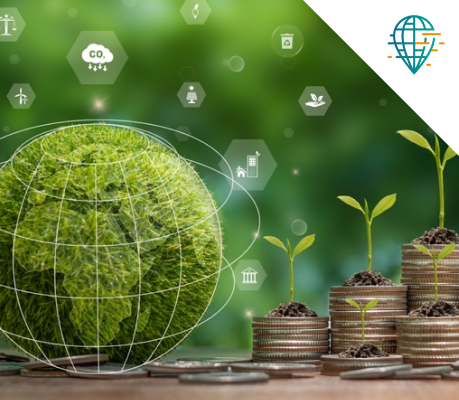 https://www.synyo.com/wp-content/uploads/SYNYO-NEWS-featured-image-NEW01007705EN.png
400
459
leo
https://www.synyo.com/wp-content/uploads/2017/09/synyo-logo.png
leo2025-01-01 10:47:112025-02-10 10:48:51BOND: Outcomes in Advancing Education, Tolerance and Heritage Preservation to combat Antisemitism
https://www.synyo.com/wp-content/uploads/SYNYO-NEWS-featured-image-NEW01007705EN.png
400
459
leo
https://www.synyo.com/wp-content/uploads/2017/09/synyo-logo.png
leo2025-01-01 10:47:112025-02-10 10:48:51BOND: Outcomes in Advancing Education, Tolerance and Heritage Preservation to combat AntisemitismReIncluGen

ReIncluGen: Launch of the project to empower migrant women in five European countries
Equality between women and men has been enshrined in the EU’s Treaty of Rome1 since 1957. However, discrepancies between them in terms of work, health, education and finances still exist in all EU-countries.2 Although inequality has steadily decreased since 2010, there have been setbacks in several domains due to the Covid-19 pandemic and also other factors.3 Migrant women occupy a particularly vulnerable position that leaves them in greater need of support.4 This is where ReIncluGen sets off and aims to develop measures to empower migrant women.
Since January 1, 2023, a total of eleven project partners from five countries have been working on ReIncluGen – “Rethinking Inclusion and Gender Empowerment: A participatory action research”. The project is led by the University of Antwerp and also involves the Universities of Barcelona, Trento and Warsaw. The civil society organizations FMV (Belgium), Feminoteka (Poland), Fundaction Intered (Spain), Nosotras Onlus (Italy) and Peregrina (Austria), as well as Kunlabora (Belgium) and SYNYO (Austria) complete the consortium.
A total of 390 person-months will be incurred across the eleven organizations. The project is funded by the EU-Call “HORIZON-CL2-2022-TRANSFORMATIONS-01”.
Peculiarities of the project
The close cooperation of scientific and civil society organizations (CSOs) represents a unique selling point of ReIncluGen. This particular participatory (methodological) approach was chosen to actively involve CSOs in the entire research process, build on their knowledge, and facilitate contact with migrant women and their needs.5 To understand their respective conceptualizations of gender empowerment, one CSO per country was directly included in the project and two more are to be studied in each of the case study countries. In turn, 150 to 200 migrant women will be able to state their opinions and perceptions through discussions in focus groups.
Another special feature of ReIncluGen is the perspective of situational intersectionality6. Migrant women’s experiences of inequality vary from country to country, depending on the period under study and whether they are affected by further disadvantages (e.g. based on class). Accordingly, their needs in terms of gender empowerment and the measures that CSOs take vary. With the help of the perspective of situational intersectionality, the respective conditions of the five countries, at different points in time, can be reflected, and compared with each other and suitable strategies can be derived.
Project objectives
The main objective of the project is to empower migrant women and girls with regard to their gender equality in their respective partner countries and beyond. This is to be implemented through the following four objectives:
- The formulation of policy recommendations. Here, the contexts in which the respective CSOs operate will be mapped out, on the legal, political and social levels.
- A travelling art exhibition and a photo/essay project. These are based on the personal experiences of the migrant women involved and their understanding of gender empowerment.
- Development of a digital platform, which includes an amalgamation of gender empowerment measures within, and enables networking and knowledge sharing among the respective CSOs. Based on the evaluation of already implemented measures, these will be developed further and new ones designed. The platform will be made accessible to all CSOs, not only to those involved in the project. Finally, the website will also serve as a quality assurance tool, allowing CSOs to evaluate the effectiveness of their measures and to account for them at the same time.
- Lastly, a toolkit containing strategies for media to actively practise gender empowerment externally and internally, within their own organization, will be developed. For this purpose, a discourse analysis will be conducted to identify the most important country-specific and cross-country issues and to analyze the extent to which media discourses and the work of civil society organizations influence each other.
SYNYO will primarily lead the discourse analysis, but will also be involved in the research conducted. Furthermore, the project results will be recorded on the project’s own website, national and international conferences for academics and non-academics will be held, local, national and European political stakeholders will be informed and publications in scientific journals are also aimed.
References
[1] Römische Verträge (1957): https://eur-lex.europa.eu/legal-content/DE/ALL/?uri=CELEX:12002E/TXT
[2] Europäisches Institut für Gleichstellungsfragen (2023): Gender Equality Index. https://eige.europa.eu/gender-equality-index/2022/EU
[3] Europäisches Institut für Gleichstellungsfragen (2023): Gender Equality Index. https://eige.europa.eu/gender-equality-index/2022/EU
[4] Migrationsdatenportal (2023): Gender und Migration. https://www.migrationdataportal.org/de/themes/gender-und-migrations
[5] Ahrweiler, Petra, Gilbert, Nigel, Schrempf, Benjamin, Grimpe, Barbara, & Jirotka, Marina (2019). The role of civil society organisations in European responsible research and innovation. In: Journal of Responsible Innovation, Jg. 6, Nr. 1, S. 25–49.
[6] Yuval-Davis, Nira (2015): Situated Intersectionality and Social Inequality. In: Raisons Politiques, Jg. 58, Nr. 2, S. 91-100.
Links
https://www.uantwerpen.be/en/projects/reinclugen/
https://twitter.com/reinclugen_eu
https://www.instagram.com/reinclugen_eu/
https://www.facebook.com/people/Reinclugen_eu/100089496848068/
Keywords
Migration, women, CSO, gender empowerment, gender equality




